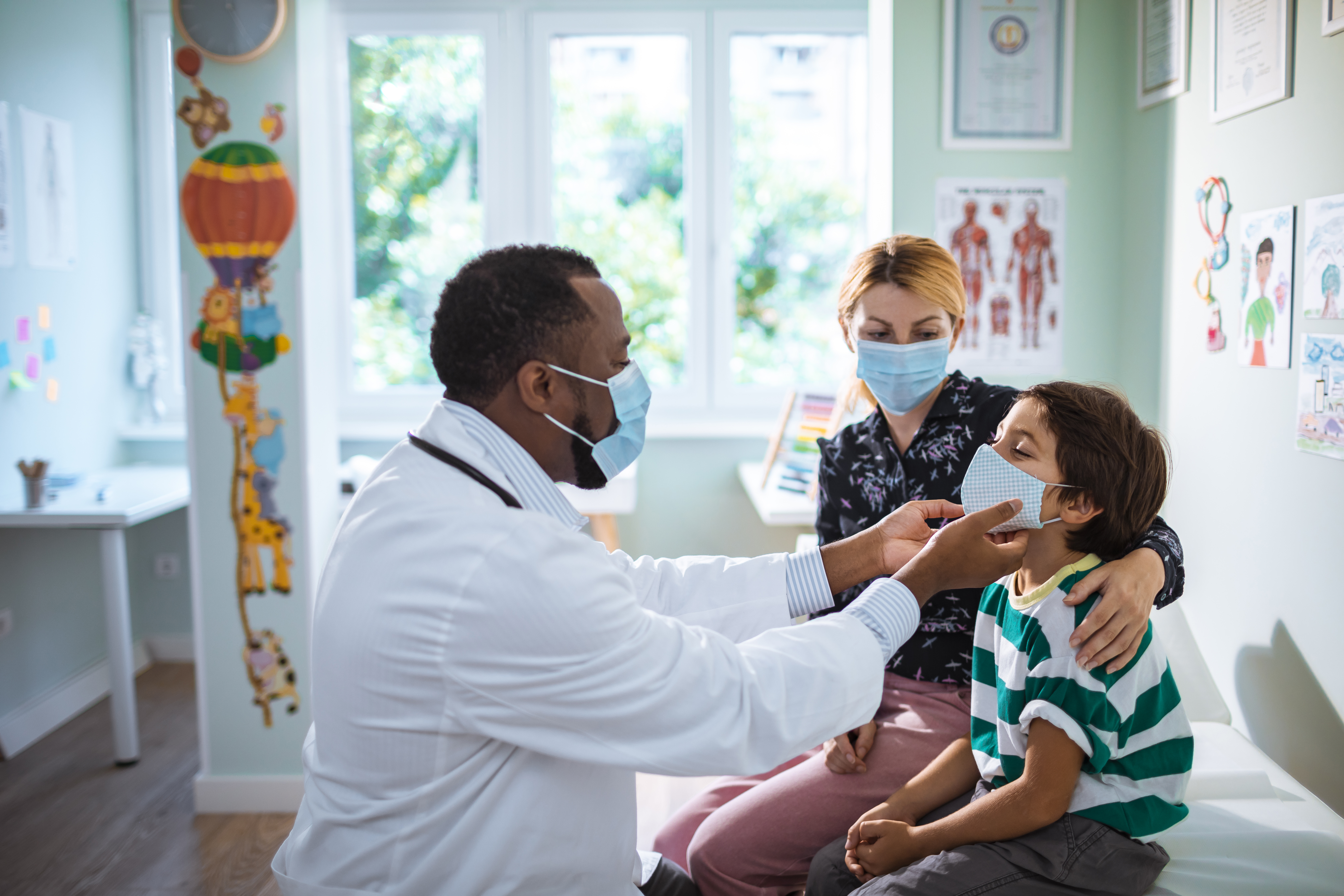Prevention Science
In early childhood, a child's brain rapidly develops with nearly a million neural connections formed per second. Experiences, including nutrition, social support, family stability, and more, shape this development Adverse childhood experiences also play a role.
Socioeconomic determinants drive health disparities. Preventive interventions have profound and lasting effects on children and youth health, including behavioral outcomes.

59%
of U.S. children experience at least one ACE
24%
of U.S. children experience three or more ACEs
32%
of low income families experience at least one food insecurity
40+
Dose-response relationships confirmed between ACEs and medical conditions
80%
of abused/neglected children will develop a psychiatric disorder
80%
Increase in risk of overall psychiatric impairment in children from food insecure families
Adverse Childhood Experiences (ACEs)
There is a growing body of research on the profound impact that conditions like abuse, neglect, danger, and loss have on children. Especially those from underserved or at-risk families. Research shows a strong link between ACEs and a wide range of physical and mental health problems across the life span.
Current and emerging research helps us understand the effects of ACEs and toxic stress on the body. This can increase risk for health problems, including chronic disease, mental illness, and obesity. ACEs include poor education, abuse/neglect, unemployment and job insecurity, poverty, food insecurity, housing instability, adverse environmental conditions, and limited access to health care.
Video
A nationwide initiative aimed at communities with children ages 2 to 5, offering families ways to manage common challenges, to simplify everyday activities, and to grow connections.
DrugCocktails.ca was created to help the youth “get the facts” about the effects and risks of mixing medications they take with substances like cigarettes, alcohol, marijuana and other street drugs.
A nationwide initiative aimed at communities with children ages 2 to 5, offering families ways to manage common challenges, to simplify everyday activities, and to grow connections.
March 23, 2016 – It was almost a year ago that the American College of Obstetricians and Gynecologists came out unequivocally in favor of universal screening for perinatal depression. In the revised policy statement from ACOG’s Committee on Obstetric […]
March 23, 2017 – The following post was first published in OB/GYN News. Please see our OB/GYN News archives here. Publish date: March 3, 2017 Over the last decade, appreciation of the prevalence of perinatal depression – depression during pregnancy and/or […]
January 19, 2018 – The following post was first published in OB/GYN News. Please see our OB/GYN News archives here. Publish date: November 22, 2017 Over the last several years, there’s been increasing interest and ultimately a growing number of mandates across […]
A 3-item item questionnaire to identify probable major depressive disorders. Questionnaire and scoring.
A 10-item questionnaire to screen the severity of depressive episodes in patients with mood disorders. Questionnaire.
Video
A New York State Obstetric Hemorrhage Project Interactive Online Webinar presented by Project TEACH Maternal Mental Health Initiative
A guide on how to find and work with birth and postpartum doulas provided by Postpartum Support International.
Supportive services for new and expecting moms.
Dr. Anna Glezer: A physician’s expert guidance on your mental health & emotional well-being during pregnancy, delivery, & postpartum. Articles, guides, & advice on mood, anxiety, mental illness, hormones, treatments, resources, & many others.
A Black-women led cross-sectoral alliance to advocate, drive research, and shift culture for Black maternal health, rights, and justice.
A Postpartum Support International program to support families and providers of color around perinatal mood and anxiety disorders.
A peer online support group to assist in breaking cultural barriers in maternal mental health awareness.
A website to helping fathers and families address postpartum depression, including peer support.
DrugCocktails.ca was created to help the youth “get the facts” about the effects and risks of mixing medications they take with substances like cigarettes, alcohol, marijuana and other street drugs.
A nationwide initiative aimed at communities with children ages 2 to 5, offering families ways to manage common challenges, to simplify everyday activities, and to grow connections.
Video
A New York State Obstetric Hemorrhage Project Interactive Online Webinar presented by Project TEACH Maternal Mental Health Initiative
An education and resource organization sponsored by the Office of Mental Health.
DrugCocktails.ca was created to help the youth “get the facts” about the effects and risks of mixing medications they take with substances like cigarettes, alcohol, marijuana and other street drugs.
Oversees one of the nation’s largest addiction services systems with approximately 1,600 prevention, treatment and recovery programs.
Video
A New York State Obstetric Hemorrhage Project Interactive Online Webinar presented by Project TEACH Maternal Mental Health Initiative